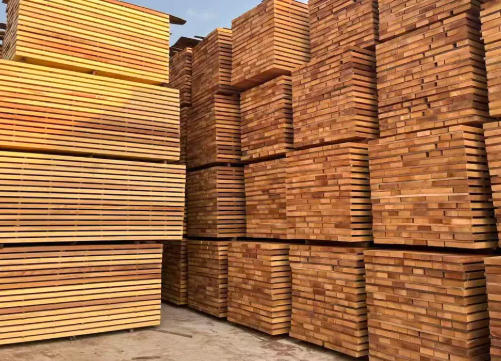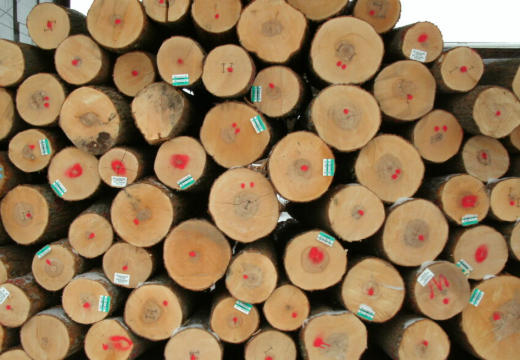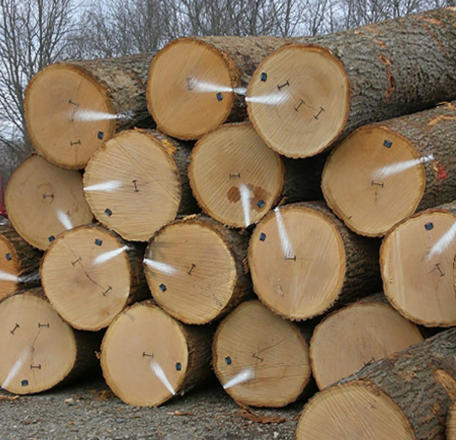Views: 222 Author: Rebecca Publish Time: 2025-11-03 Origin: Site











Content Menu
● The Zambian Hardwood Industry: Foundation and Trends
● Key Species and Product Applications
● Company Profiles: Leading Hardwood Log Suppliers in Zambia
>> Wood Processing Industries Ltd (WPI)
>> Sikale Wood Manufacturers Limited
● Sustainability and Industry Challenges
>> Forest Depletion and Illegal Logging
>> Certification and Government Initiatives
● Market Drivers and Opportunities
>> Construction and Infrastructure
>> Furniture and Value-Added Wood Products
>> Government Policy and Export Opportunities
● Industry Statistics and Competitive Landscape
● Supply Chain and OEM/ODM Services
● Opportunities for Innovation
● FAQs
>> 1. What hardwood species are most commonly supplied by Zambian manufacturers?
>> 2. Are Zambian hardwood logs exported worldwide?
>> 3. How do suppliers ensure sustainability?
>> 4. Can SMBs access the Zambian hardwood supply chain?
>> 5. What is the future outlook for Zambia's hardwood industry?
Zambia, located in the heart of Southern Africa, has carved out a critical role in the hardwood industry thanks to its vast natural forests and rich biodiversity. The country supplies the world with prized hardwood logs—including African teak, rosewood, mukwa, and ebony—powering furniture, flooring, construction, and specialty wood markets globally. As international interest in sustainable African timber rises, Zambian manufacturers and suppliers stand out for their quality, reliability, and commitment to environmentally responsible forestry.[11][12][13]

Forestry is a backbone economic sector in Zambia, shaping rural livelihoods and contributing to national export revenues. The country boasts large swathes of indigenous forests, yielding hardwood logs in various forms: round logs, sawn timber, veneers, and finished furniture parts. Zambia's forests supply essential resources not only to local businesses but also to buyers in the Middle East, Europe, Asia, and the Americas.[12][14]
Recent reports project that Zambia's lumber market will see mixed but steady growth, with annual growth rates ranging from 3.96% in 2025 to a peak of 4.97% by 2027. By 2029, the market stabilizes at a sustainable rate of 4.10%. These numbers highlight ongoing expansion, especially as demand for hardwood in construction and furniture builds momentum.[1]
Hardwood log and lumber exports are a pillar of Zambia's trade, with exports of wood and related articles valued at USD 17.66 million in 2024. China remains the dominant international market, accounting for over 99% of Zambia's log exports in some years. Exports have surged more than 6,000% from 2010 to 2017, but this rapid growth poses challenges for forest sustainability.[2][3]
- African Teak (Baikiaea plurijuga): Celebrated for strength and resilience, used in outdoor furniture and high-end flooring.[11]
- Rosewood (Guibourtia coleosperma): Famed for vivid hues and close grain, ideal for cabinetry and luxury woodwork.[15]
- Mukwa / Kiaat (Pterocarpus angolensis): Noted for workability and attractive finish, favored in joinery and design projects.[16]
- Ebony: Dense, durable, and extensively used for fine instruments and decorative items.[17]
Common applications include building construction, infrastructure, furniture manufacturing, interior décor, wood moldings, and marine products. The rising population and rapid urbanization have further increased local demand for hardwood logs in housing and construction.[5][1]
Founded in 1984, WPI is Zambia's flagship hardwood supplier, operating extensive sawmills and production facilities. The company produces hardwood logs, sawn timber, blockboards, and finished furniture, offering robust international logistics and a sustainable forestry commitment. WPI's vertically integrated supply chain ensures consistent quality and volume for OEM clients.[18][11]
Sikale specializes in transforming premium Zambian hardwoods into furniture, flooring, doors, and architectural products. The firm's deep expertise in custom orders supports international projects, and advanced finishing technologies deliver superior craftsmanship.[12][11]
As the region's largest African teak producer, Zambezi Saw Mills supplies bulk hardwood for export and construction, backed by reliable logistics and strong technical capabilities. Their expertise attracts construction companies and international wholesalers.[11]
JALCO is a major exporter of hardwood flooring and construction lumber, based in Lusaka. They focus on rosewood, mukwa, Rhodesian teak, and ebony, offering competitive rates and fulfilling large-volume orders efficiently.[17]
Dansu is a prominent Lusaka-based sawmill, producing hardwood logs for local distribution and small-scale export markets. Their products serve regional contractors and small businesses.[19][20]
- Border Timbers Limited (in cooperation with Zambia): Partnered in regional hardwood logistics and export.[12]
- Seltim Timber: A sustainable forest owner and supplier with a focus on transparency.[20]
- Miracle Timber Zambia Ltd: Handles significant volumes with a focus on customer service.[21]
- Chinika Wood Processing Co Ltd: Well-equipped for large orders and quick processing turnarounds.[21]

Despite high export volumes, Zambia's hardwood industry faces mounting environmental pressure. From 2010 to 2017, log exports exploded by 6,000%, leading to rapid forest depletion. Illegally harvested logs often travel informal routes into neighboring countries, evading regulation.[2]
To combat deforestation, leading suppliers adopt FSC and PEFC certifications, promoting legal and eco-friendly sourcing. Government policies target illegal logging, reforestation, and supply chain transparency, though enforcement sometimes lags behind market dynamics.[14][1]
Manufacturers operate in a sector affected by fluctuating raw material prices, competition from steel and concrete, and environmental regulations. Regulatory uncertainty and shifting market demands increase the stakes for sustainable business practices.[1][5]
The ongoing boom in Zambia's construction sector drives steady demand for durable hardwoods in building and infrastructure projects. In 2025, the construction industry will grow 5% in real terms, further fueling timber consumption.[8]
Alongside housing, Zambian hardwood is pivotal for quality furniture, interior décor, and specialty woodwork. Numerous manufacturers now invest in value-added products—such as panels, flooring, and moldings—to meet global and local market needs.[5]
Strategic initiatives by the Zambian government aim to boost forestry's contribution to GDP, encourage sustainable practices, and support exports. International buyers increasingly favor suppliers committed to legal sourcing and environmental stewardship.[14][1]
- Export Value: USD 17.66 million for wood and related articles in 2024.[3]
- Growth Rate: The lumber market will grow by 3.96% in 2025 and by 4.97% in 2027.[1]
- Forestry Decline: Zambia's forestry revenue and resource base is projected to shrink from 51,000 hectares (2023) to 50,000 hectares (2028), signaling long-term resource management needs.[6]
- Sectoral Growth: Agriculture, forestry, and fishing recorded a 27.6% growth rate at industry level in March 2025, underscoring economic relevance.[7]
Zambia's top suppliers offer flexible OEM/ODM services, adapting to custom log dimensions, finishes, and international order protocols. Advanced logistics—from forest management to port shipment—support exporters and overseas buyers seeking reliable partnerships for B2B and bulk procurement.[13][11]
Manufacturers are investing in new product launches, innovative wood processing, and enhanced customer service standards. Sustainable forestry, reforestation programs, and advanced digital supply chain tracking further differentiate Zambia's best suppliers in the global market.[5]
Zambia continues to solidify its reputation as Africa's hardwood powerhouse, offering international buyers quality, reliability, and scalable supply solutions. Despite challenges like illegal logging and resource depletion, proactive government policy and industry certification are shaping the sector for sustainable growth. For brands, wholesalers, and manufacturers requiring certified hardwood logs and value-added timber, Zambia's professional suppliers—including WPI, Sikale, and Zambezi Saw Mills—make the country an ideal sourcing destination. OEM and custom services further expand opportunities for global procurement, while rising market growth signals a vibrant future for Zambia's hardwood industry.[3][13][2][1][11][12]

African teak, rosewood, mukwa (kiaat), and ebony are most frequently supplied, each prized for structural strength, durability, and unique visual aesthetics.[17][11][12]
Yes. Major markets include China, Vietnam, Europe, and the USA, with China accounting for the vast majority (over 99%) of exports in some periods.[18][2]
Supplier compliance with FSC, PEFC, and local initiatives, plus government regulations promoting reforestation, are key to legal and sustainable hardwood supply chains.[14][1]
Absolutely. Smaller sawmills and merchant networks service domestic clients and smaller foreign importers, with bulk and custom order options.[22][23][20]
With further investment in sustainable forestry and robust construction growth, Zambia's hardwood sector will remain strong, poised for modernization and global expansion.[8][1]
[1](https://www.6wresearch.com/industry-report/zambia-lumber-market)
[2](https://makanday.org/zambias-last-hardwoods-are-falling-faster-than-the-law-can-act/)
[3](https://tradingeconomics.com/zambia/exports/wood-articles-wood-wood-charcoal)
[4](https://www.innomis.one/object/zambia-wood-processing-equipment-export-market-1000-eur-trend-forecast-value-y/)
[5](https://www.6wresearch.com/industry-report/zambia-hardwood-veneer-and-plywood-market)
[6](https://www.reportlinker.com/clp/country/6/726321)
[7](https://www.zamstats.gov.zm/wp-content/uploads/2025/03/Vol-264-of-2025-The-Monthly-March.pdf)
[8](https://finance.yahoo.com/news/zambia-construction-industry-report-2025-115000275.html)
[9](https://www.6wresearch.com/industry-report/zambia-wood-processing-market)
[10](https://www.wm-strategy.com/zambia-engineered-wood-industry)
[11](https://www.shdtimber.com/top-hardwood-wood-manufacturers-and-suppliers-in-zambia.html)
[12](https://www.shdtimber.com/top-hardwood-manufacturers-and-suppliers-in-zambia.html)
[13](https://www.shdtimber.com/news/Top-Hardwood-Exporters-Zambia.html)
[14](https://www.olamagri.com/products-services/wood-products.html)
[15](https://www.facebook.com/groups/456467567894267/posts/2632776326930036/)
[16](https://www.globalwood.org/trade/lumber.asp?Page=167)
[17](https://www.globalwood.org/company/mgodetail.asp?id=13655)
[18](https://wpizambia.com)
[19](https://www.lesprom.com/en/members/countries/Zambia/)
[20](https://www.lesprom.com/en/members/countries/zambia/)
[21](https://www.trademo.com/zambia/manufacturers/wood/4)
[22](https://www.africanadvice.com/Timber_And_Hardware_Merchants/Zambia/)
[23](https://www.business-yellowpages.com/zambia/Timber/11929)